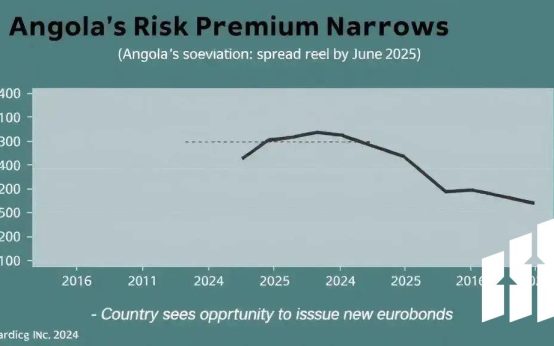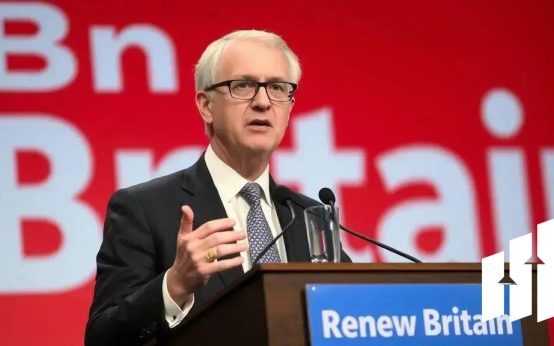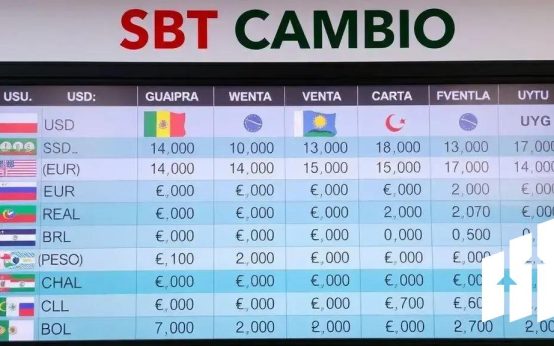The Bank of Japan’s monetary policy is influenced by various economic indicators, including GDP growth, inflation rates, and unemployment levels. These factors guide the BOJ in making decisions about interest rates, with the aim of stabilizing the economy. Market reactions to BOJ statements can cause quick fluctuations in the yen’s value, impacting global markets as well. As Japan faces ongoing economic challenges, careful monitoring of these indicators will be crucial for predicting future policy changes and their implications.
In recent remarks, the Bank of Japan Deputy Governor Ryozo Himino emphasized caution regarding interest rate hikes, leaving investors questioning future measures.
Current stance of the BOJ on interest rates
The Bank of Japan (BOJ) has a unique approach to interest rates. Currently, the BOJ keeps rates very low, even negative at times. This might sound strange, but it’s intended to boost spending and investment.
Low rates are meant to encourage people to borrow money. When borrowing is cheaper, businesses can invest in growth. This leads to more jobs and a stronger economy. For families, lower rates mean lower mortgage payments and easier home buying.
Reasons Behind the Low Rates
Japan’s economy has faced challenges for years. These include a declining population and slow economic growth. By keeping rates low, the BOJ aims to combat these issues. Historically, Japan has struggled with deflation, where prices decline over time. Low interest rates help to encourage spending, which can counter this trend.
Market Reactions
Whenever the BOJ speaks about rates, markets pay close attention. Recent comments from BOJ officials indicate that changes may not happen soon. This leaves investors waiting and watching how the yen reacts. A stable yen can help Japan’s export-driven economy thrive, but uncertainty can lead to fluctuations.
International Impact
The stance of the BOJ also affects other countries. For instance, when Japan keeps rates low, the yen can weaken. This makes Japanese goods cheaper abroad, boosting exports. However, it can also create tension with trade partners who may feel their goods are competing unfairly.
Future Expectations
Many experts believe that the BOJ may eventually increase rates. However, timing is everything. Economic indicators must show strong growth and inflation before any real changes happen. Until then, the current rate policy remains in place, creating a wait-and-see atmosphere for investors.
Impact of comments on the yen
The yen is sensitive to comments from the Bank of Japan (BOJ) officials. Whenever they speak about interest rates, the yen often reacts quickly. For instance, if they hint at raising rates, the yen can strengthen against other currencies.
A stronger yen makes Japanese goods more expensive abroad. This can lead to fewer exports, which isn’t good for the economy. On the flip side, a weaker yen can boost exports. This is crucial for Japan because its economy relies heavily on selling products overseas.
Market Reactions to BOJ Statements
Traders closely monitor BOJ statements. Any sign of a policy shift can lead to rapid buy or sell actions in currency markets. This means the yen may fluctuate a lot after news breaks.
Speculation and Uncertainty
Whenever there’s uncertainty, traders may become cautious. They could hold off on trading until they have a clearer picture. This brings mixed feelings in the markets. Investors might worry about the potential impacts on the economy.
Comparing the Yen with Other Currencies
The yen’s value does not just depend on Japan’s economy. It’s also affected by global economic conditions. For example, when the US economy is strong, the dollar often rises, making the yen weaker. Traders must consider these broader factors when analyzing currency movements.
The Future of the Yen
The future value of the yen depends on many things. Global economic health, as well as Japan’s policies, will be key. If the BOJ decides to raise rates, we might see a stronger yen. But if they keep rates low, the yen could stay weak for a while.
Market reactions to BOJ’s statements
Market reactions to the Bank of Japan (BOJ) statements can be swift and intense. Traders watch these announcements closely. Any hints about interest rate changes can cause immediate shifts in the currency market.
When the BOJ signals a possible rate hike, the yen often strengthens. This happens because higher rates can attract more investors. They seek better returns on their money. Conversely, if the BOJ suggests that rates will stay low, the yen tends to weaken. This can create more volatility in the market.
Examples of Immediate Impact
For instance, after a recent BOJ meeting, comments from officials led to a quick rise in the yen’s value. Traders reacted instantly, making significant moves in currency pairs. This shows how closely people follow BOJ news.
The Role of Speculation
Traders also deal with speculation. They try to guess what the BOJ will do next. If they think rates will go up soon, they might buy yen in advance. This speculative behavior can affect market trends.
Broader Market Implications
Changes in the yen can impact global markets, too. A stronger yen can mean higher prices for Japanese goods. This might hurt Japan’s exports but help consumers buying foreign products. Thus, the BOJ’s statements catch attention beyond just local traders.
Investor Sentiment
The mood among investors often shifts with BOJ statements. Positive news can lead to confidence in the economy. On the other hand, uncertainty or negative signals can cause concern. This sentiment plays a crucial role in how markets behave.
Economic indicators influencing rate decisions
Several economic indicators play a crucial role in the Bank of Japan’s (BOJ) rate decisions. These indicators help determine the health of Japan’s economy and guide BOJ policies. Understanding these can provide insights into future rate changes.
One key indicator is Gross Domestic Product (GDP). It shows how much the economy is growing. When GDP rises, it often leads to calls for higher interest rates. Higher rates can help cool down a booming economy.
Another important factor is inflation. The BOJ aims for a stable inflation rate around 2%. If inflation rises too high, the BOJ might raise rates to control it. This situation helps stabilize prices.
Unemployment Rates
Unemployment rates also influence decisions. Low unemployment suggests a strong job market. This can lead to increased consumer spending. On the other hand, high unemployment may cause the BOJ to keep rates low to encourage borrowing and spending.
Consumer Confidence Index
The Consumer Confidence Index measures how people feel about the economy. If confidence is high, spending usually increases. This can push the BOJ to consider raising rates. Strong consumer sentiment often boosts economic growth.
Trade Balance
Japan’s trade balance affects the yen’s strength. A positive trade balance, with more exports than imports, can lead to a stronger yen. This, in turn, influences the BOJ’s outlook on future rate adjustments.
Future outlook for Japanese monetary policy
The future outlook for Japan’s monetary policy depends on several key factors. Economists and analysts closely watch these trends. They can shape the decisions made by the Bank of Japan (BOJ).
One factor is economic growth. If Japan’s economy continues to expand, the BOJ may consider tightening monetary policy. This could involve raising interest rates to prevent overheating.
Inflation rates are also crucial. If inflation stays above the BOJ’s target of 2%, it may prompt changes. The central bank might raise rates to keep prices stable. Conversely, low inflation might keep rates low for a longer time.
Global Economic Conditions
Global factors will play a big role too. Changes in the U.S. economy, for example, can influence Japan’s decisions. If the U.S. raises rates, Japan may need to respond to maintain competitiveness.
Public Sentiment and Spending
Consumer confidence and spending patterns matter for future policy. If consumer spending is strong, it can lead to greater inflation. This rise might push the BOJ to act sooner.
Political Considerations
Politics also influences monetary policy. Changes in government or new policies can lead to shifts in how the BOJ operates. Political pressures from various groups might affect the bank’s decisions too.
Conclusion
In conclusion, understanding Japan’s monetary policy and its impact is vital for investors and businesses. Factors like economic growth, inflation rates, and global economic conditions play significant roles in shaping these policies. Keeping an eye on these trends can help anticipate future changes.
As Japan navigates its economic challenges, the decisions made by the Bank of Japan will affect not just their economy but also have ripple effects globally. By staying informed and adaptable, businesses can better prepare for whatever changes lie ahead in this dynamic landscape.
FAQ – Frequently Asked Questions about Japan’s Monetary Policy
What factors influence the Bank of Japan’s monetary policy decisions?
Key factors include economic growth, inflation rates, unemployment, trade balance, and consumer confidence.
Why is inflation an important consideration in monetary policy?
Inflation affects how much consumers spend and impacts the overall economy, which can lead the BOJ to adjust interest rates.
How do global economic conditions affect Japan’s monetary policy?
Global factors, like changes in the U.S. economy, can influence Japan’s currency value and affect BOJ decisions.
What role does consumer confidence play in the future of monetary policy?
High consumer confidence usually leads to increased spending, which can prompt the BOJ to consider raising interest rates.
How does unemployment impact the Bank of Japan’s rate decisions?
Low unemployment suggests a strong job market, potentially leading the BOJ to raise rates to cool down economic growth.
What are the potential effects of Japan’s monetary policy on global markets?
Changes in Japan’s monetary policy can influence exchange rates and impact trade relationships with other countries.


 Miran Highlights Dual Goals of Fed and Interest Rate Outlook
Miran Highlights Dual Goals of Fed and Interest Rate Outlook  Are You a Robot? Unusual Activity Detected on Bloomberg
Are You a Robot? Unusual Activity Detected on Bloomberg  Keir Starmer Leads Business Delegation to India for Trade Pact
Keir Starmer Leads Business Delegation to India for Trade Pact  Takaichi Appoints Ex-Finance Minister as Secretary General of LDP
Takaichi Appoints Ex-Finance Minister as Secretary General of LDP  Argentina Continues Dollar Sales Amid Weakened Peso Crisis
Argentina Continues Dollar Sales Amid Weakened Peso Crisis  White House Calls on Democrats to Resolve Ongoing Government Shutdown
White House Calls on Democrats to Resolve Ongoing Government Shutdown